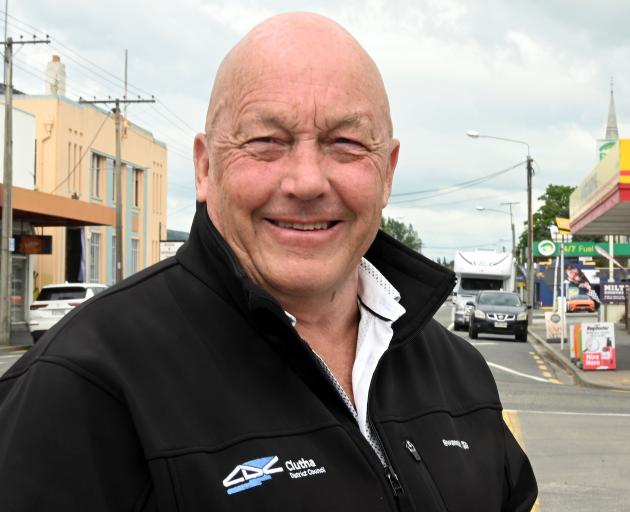
In a speech to the Local Government New Zealand Infrastructure Symposium yesterday, Infrastructure Minister Chris Bishop outlined the three pillars of the government’s infrastructure funding and financing work programme.
The first clarified that Crown funding would only finance infrastructure after user-pays and private financing had been thoroughly considered.
The second would expand councils’ financing tools to include value capture, meaning "those who gained benefit from public investment help pay for it", user pays and transport revenue reform which meant every vehicle paid for using the roads.

The third pillar would modernise and develop the Crown’s policies, frameworks and contracting models. That would include public-private partnerships.
Clutha District Mayor Bryan Cadogan said a sustainable option had not been presented to councils in the past couple of years and the Three Waters issue had highlighted councils’ limitations when negotiating prices for infrastructure.
He said the suggestion of a user pays model showed a "detachment from reality" from the government.
This week he had discovered the cost of the council’s Greenfield water project was going to rise $5.5 million. That meant the protected water rate for farmers would not meet expectations and farmers in the scheme would be paying more than $1000 in rates.
Any attempts at negotiating that cost would lead to the council being taken to court by water regulator Taumata Arowai.
"Consequently, you do the work at the price it’s given to you or you go to court and then you do the work possibly at a greater price just to show you are not to do that again."
Mr Cadogan said public-private partnership would also further drive up rates and it was a "one-dimensional, rudimentary once-over" that avoided government obligations.
During the next 10 years, the Clutha district had a $611m of water capital and operating expenditure that would be divided among 6947 ratepayers.
Any business joining in a public-private partnership with a council would be motivated by a profit that would add to that expenditure, he said.
Mr Cadogan gained an overview perspective of Three Waters when he chaired one of the three working groups for the whole of New Zealand for the proposal.
"Consequently, I know that every single council in New Zealand has an Achilles heel.
"It could be fast growth, big land mass, small population or high debt; there is always a combination and somewhere every single council is exposed.
"This is not going to be an easy fix and the longer government abdicates from its responsibility and leaves councils with the limited tools of debts and rates to deal with it we will have this situation. It’s untenable."
Queenstown Lakes District deputy mayor Quentin Smith said he was open to the government’s suggestions which included toll roads and congestion charges, but he sought further clarification on how they would work in his district.
He said rating was not going to "cut the mustard" and new options needed to be examined.










